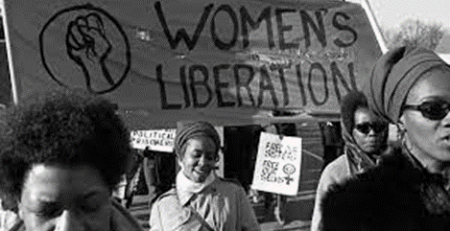If not Pro-Abortion, then Pro-Family: Finding Common Ground
Because I’m not a mother, all of my knowledge about pregnancy and motherhood is hearsay, but the anecdotal evidence I’ve gathered says that both can come with problems and struggles that non-parents can barely imagine. The commonly known problem of throwing up in the morning is not nearly as life-threatening as gestational diabetes or suicidal depression. The statistics on maternal mortality for black women from pregnancy complications is horrific – nearly 3 times higher than white mothers; the US has the highest maternal mortality rate of all developed nations. Maternal deaths can be caused by anything from hemorrhaging to heart failure. Our nation’s healthcare system and difficulty getting time off dissuades women from getting pre-natal care; lack of obstetricians during delivery can make a complicated birth turn into a fatality.
And then there is the money. Not all women can lactate, and formula is horrifically expensive. Not all women can afford to stay home and finding good daycare can be a nightmare unless there is family to help out. Children grow out of clothes every year – babies grow out of clothes every three months. And because stores know that the items in the baby aisle, like diapers, are necessities, they can be outrageously priced. I still remember buying diapers as a shower gift. I think I bought 100, and I was told that they would be gone in less than a week. Children need regular doctor visits and vaccines – an earache means a trip to urgent care.
So, when Roe v. Wade was overturned, all I could think about was the women who were not prepared to be mothers, becoming mothers. And the women who were having abortions because they couldn’t afford more children, having more children. Women who were not married, girls who were still in high school, girls who were in middle school, with no safety nets to help them survive.
In a recent blog, I mentioned some pro-family legislation that has come about in Republican states as a result of the anti-abortion legislation. And I said that it doesn’t go far enough. Well, there has been progress; Congress is getting involved, across the table. Recently I read an article written by two columnists, one Pro-Choice and one Pro-Life, who were looking at possible legislation that both camps could agree on. I decided to do some digging of my own and found a lot of new legislation that is pro-family. Most of the bills I’m listing here have joint bipartisan co-sponsorship, and hopefully will go through. For example, there is a bipartisan program put together in the Senate to address the horrific number of maternal deaths, which has tripled since 1990. The program includes improved training, telehealth options and more doula care – obstetric professionals providing pre-natal, labor and post-natal care when doctors aren’t accessible. There are also several initiatives to collect data in the hope of finding more solutions to maternal health issues and deaths. The House also passed a bill to increase home health aide visitation. Morgan State University is now heading a program that has been taken up by 15 HBCUs to train doulas and champion efforts to curb deaths of pregnant black women.
Also at the Senate level, there is also a bill to raise the child tax credit from $2000 to $4200 for children under 6. This is sponsored by one of the most liberal Republican politicians in the Senate, so we’ll see if it will fly.
Next, there is a bipartisan bill to increase adoption rates with an expanded adoption tax credit. This will provide more of an option for the women who don’t believe in abortion but want to give up the child.
A bill with government funding is a bipartisan bill that provides funding for early child-care education programs, possibly resulting in free child-care for low-income families.
There are two efforts that truly help two of the most vulnerable populations, teens in school and college women who get pregnant. One bill instructs colleges to provide resources for mothers in terms of housing, daycare and spaces for breast feeding. Another bill is a block-grant to pay for child-care for teen parents.
An amazing bipartisan bill is around affordable housing. It’s a tweak of an existing act which will increase the housing credit and expand access, block communities from excluding programs in their neighborhoods and increase access for college students.
Last is a bipartisan bill to raise the pre-tax spending account for child-care from $5,000 to $10,500. This helps middle-income families more than it helps low-income families, but it is something.
The interesting thing about these bills is that they reduce the amount of income tax or require government spending, but don’t affect private companies. In contrast, Democrats want to get employers involved. They have sponsored a bill to expand family and medical leave to 12 weeks. This is unpaid, but it keeps employers from replacing workers. Biden put a 12-week paid leave policy in his Build Back Better Bill in 2021 and it was one of the first items to get cut. We are one of the only first-world countries that does not offer this.
One employer-affected bill that passed last year is the Pregnant Workers Fairness Act. In my mind, it requires employers to do the minimum, but it is a start. Pregnant women and new mothers are allowed to ask for accommodations and receive them without reprimand. A chair, a water bottle, a place to pump. Lifting weight limits, unpaid leave for doctor’s appts, accommodations for morning sickness. These are real issues for women working in low-paying jobs; issues that previously could get them fired. So, it’s a big thing, at little cost to employers.
Congress cannot affect Medicaid, but several states are stepping up, increasing the length of time a new mother can receive Medicaid, or increasing the income level of eligibility. And some states are getting employers to offer paid parental leave.
It is sad that it took the end of abortion rights to push legislators to address family issues in a big way, but it’s happening. It’s about time.











Comments (3)
You have remarked very interesting points! ps nice website.Money from blog
… [Trackback]
[…] Find More on that Topic: afrobougieblues.com/if-not-pro-abortion-then-pro-family/ […]
… [Trackback]
[…] Find More to that Topic: afrobougieblues.com/if-not-pro-abortion-then-pro-family/ […]